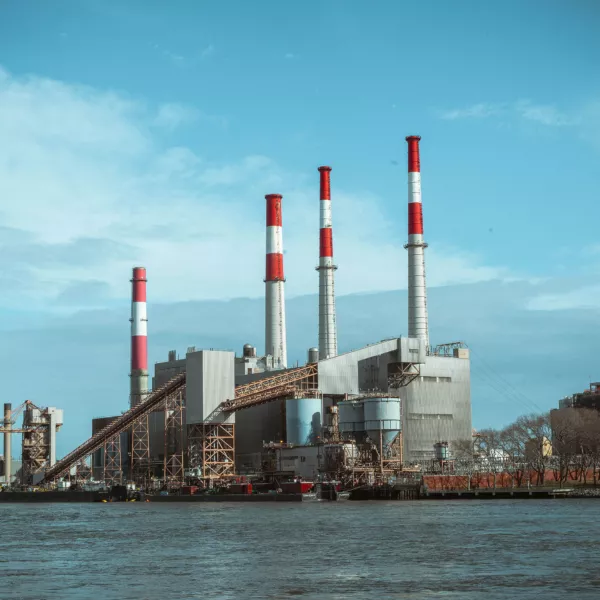Industrial odor removal
About
Taking a proactive approach to odor control will earn you a reputation as an environmentally responsible business that is respectful of its community. DESOTEC is ready to partner with you, offering a rapid delivery of sustainable mobile filtration solutions that enable your business operations to continue smoothly.
Why Should You Treat Odors?
It can be hard to pinpoint the source of odors, and emissions measurement is complex and somewhat subjective. Therefore, the need to treat odors often arises only when complaints arise.
With increasing urbanization and lower tolerance for odor nuisance, some long-established sites are facing complaints for the first time. These complaints can arise even when a site meets environmental emissions limits.
DESOTEC’s mobile filtration services enable you to treat odors promptly, preempting action required by environmental authorities and avoiding costly downtime. You’ll also maintain your positive image in the media and community as well as creating a more welcoming facility for site workers and visitors.

What Are the Industrial Sources of Odors?
Many industrial sectors inevitably produce odors. Yet, highly effective treatments such as DESOTEC’s mobile filtration solutions are available.
Naturally, the food and feed industries are rich in smells. Tolerance levels for certain odors are low, such as pet food, slaughterhouses, and meat and fish processing. Others, such as coffee roasting, may be pleasant, but only at lower concentrations.
DESOTEC filters can also reduce sulfur smells from waste management and wastewater treatment to ensure that they don’t disturb area residents.
While there is generally a higher tolerance for agricultural odors, it’s important to treat fertilizer smells and those emanating from biogas plants.
Other applications in which industrial odor control makes all the difference include those related to the manufacture or handling of asphalt and bitumen, fragrances, polyester and composites, paints, and coatings.
Which Molecules Require Industrial Odor Control?
Odorous molecules can be volatile organic compounds (VOCs) or inorganic chemicals, including:
- Amine smells from fish processing.
- Phenol and benzene odors from petroleum.
- Acrylate and styrene odors from plastics and composites.
- Hydrogen sulfide (H₂S) and other sulfur smells from bitumen and biogas.
- Ammonia (NH₃) from fertilizers.
- Dimethyl sulfide (DMS) and dimethyl disulfide (DMDS), aromatic hydrocarbons, H₂S, and NH₃ from sludge, sewage and wastewater treatment.
With DESOTEC’s activated carbon filters, manufacturers are successfully treating these odors and many others.
Local industries are at the heart of their communities, providing them with job opportunities and economic benefits. DESOTEC mobile filtration services enable every industrial installation to build good relations with neighbors by keeping the air fresh and clean.
Helping you comply
As odor complaints rise, regulations are becoming stricter. DESOTEC has both the know-how and the technology to enable your company to comply with upcoming legislation.
At EU level, the Industrial Emissions Directive (IED) is the main regulation that governs odor emissions in Europe.
Country-specific legislation includes TA Luft in Germany, which has been updated to include nationwide regulations governing odor. Other countries and regions have similar legislation.
Environmental authorities set the terms of site operating licenses, which can include odor emissions limits. If your company is facing investigations by these authorities, we can promptly deliver effective solutions.
How we help you
DESOTEC Sustainable Mobile Filtration Solutions
If your company faces odor issues, DESOTEC’s full-service mobile activated carbon filters provide answers.
We install filter setups using standard activated carbon for VOCs or impregnated activated carbon for inorganic compounds. Filters work alone or in combination with other technologies. In urgent situations, our mobile filters will be operational in no time.
We transport filtration waste from your site in closed units. All molecules are destroyed and, where possible, carbon is reactivated, giving you a circular solution that is both efficient and green. Where reactivation is impossible, waste is treated safely. Our R&D team is continually seeking new treatment solutions to further boost sustainability.
DESOTEC has supported us for the engineering and supply of our process air purification, which enables us to capture odors and avoid emission to our neighbors.
Odor control issues? Learn how to solve them!
Strong odor can become a real nuisance for the surrounding neighborhood and can lead to a difficult situation if the problem is not managed properly. But solutions exist to limit or remove the emission of odor in the air. We’re inviting you to join this webinar to explore the possible options to solve odor nuisance issues.
Dowload our ebookOdor control issues? Learn how to solve them!
Strong odor can become a real nuisance for the surrounding neighborhood and can lead to a difficult situation if the problem is not managed properly. But solutions exist to limit or remove the emission of odor in the air. We’re inviting you to join this webinar to explore the possible options to solve odor nuisance issues.
Dowload our ebookOur filtration solutions
Mobile, modular industrial filtration that lets you focus on your business. Sustainable waste handling and round-the-clock support are included for a hassle-free service.
-
Industries we help
We partner with companies in a variety of sectors, adapting our modular filtration solutions to your unique needs. -
Our unique service
Our closed-loop, full-service model is as unique as your business needs. We’ll define the right filtration setup and safely recycle filtration waste, making it easy to go green. -
Your Sustainability Journey
Like you, we care about protecting our air, water, and soil for future generations. Our filtration solutions help you meet environmental standards, reducing your carbon footprint.


